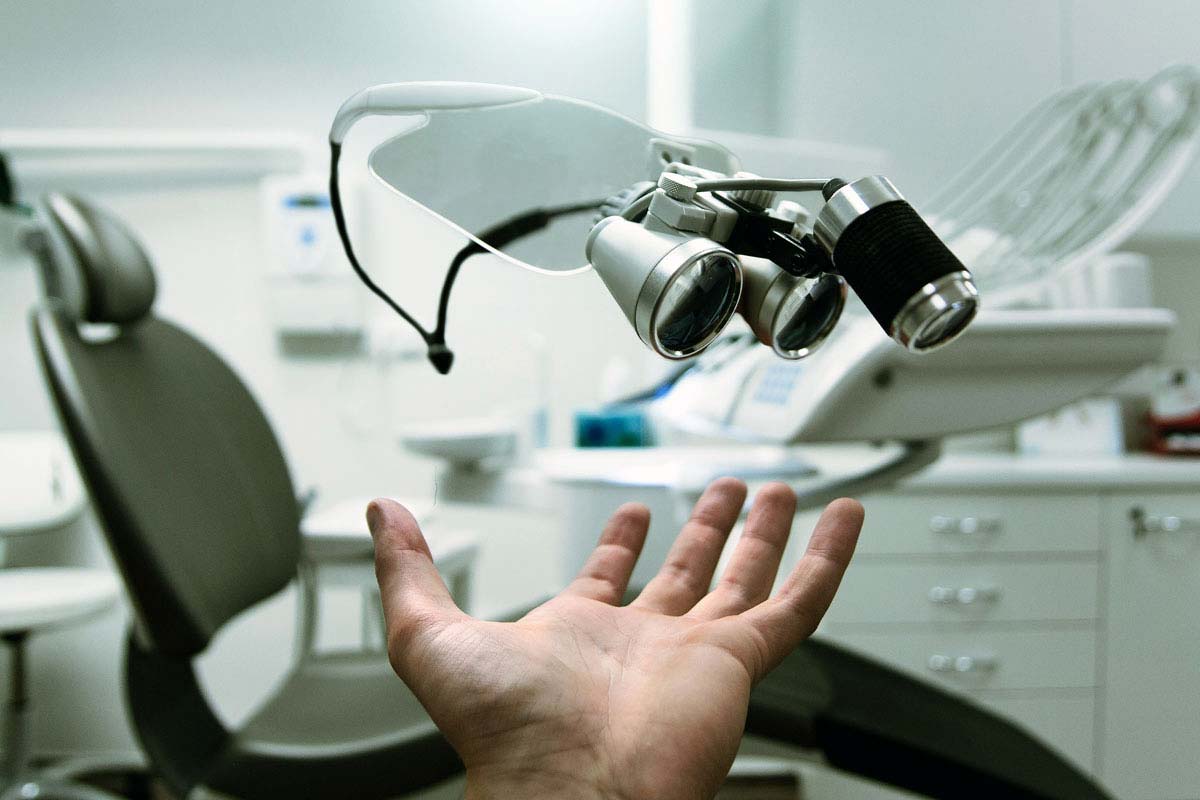Dementia and Optometry: A Growing Need
Let’s get real for a second: when we think about dementia, eye care isn’t exactly the first thing that comes to mind. But here’s the kicker—vision problems can massively impact how someone experiences dementia, and vice versa. At Liberty Laser Eye Center in Vienna, Virginia, we’ve seen firsthand how intertwined these two worlds are. Whether you’re caring for a loved one or just curious about the connection, let’s break this down together. (Spoiler: It’s way more important than you might think.)
Why Dementia and Vision Are Frenemies
We all know dementia affects memory, but did you know it can mess with visual processing too? The brain regions responsible for interpreting what we see often take a hit, making it harder to recognize faces, judge distances, or even navigate a room. Suddenly, that “cluttered living room” isn’t just messy—it’s a minefield.
Here’s the twist: untreated vision issues like nearsightedness, farsightedness, or astigmatism can mimic dementia symptoms. Grandma forgetting your name? Maybe her glasses prescription is outdated. Grandpa bumping into furniture? Could be cataracts, not cognitive decline. That’s why regular Annual Eye Exams are non-negotiable. At Liberty Laser Eye Center, we’ve had patients come in thinking they needed memory care, only to leave with a simple prescription update. Talk about a plot twist!
How Optometrists Can Be Dementia’s Secret Weapon
Optometrists aren’t just the “glasses people.” For those with dementia, they’re frontline detectives. Here’s how we help:
- Spotting Red Flags: Sudden changes in vision? Could signal stroke, diabetes, or even medication side effects—all of which can worsen dementia symptoms.
- Simplifying Solutions: Complex bifocals? No thanks. We prioritize easy-to-use eyewear to reduce confusion.
- Collaborating with Caregivers: We’ll clue you in on subtle signs, like squinting or avoiding reading, that might mean it’s time for a checkup.
And hey, if you’re in Washington DC or nearby, swing by Liberty Laser Eye Center. We’re your nearest experts in tailoring eye care to every brain’s needs.
Common Eye Issues in Dementia (and How to Tackle Them)
Let’s get technical—but keep it fun. Here’s the lowdown on conditions we see often:
Presbyopia: The “Arm’s Length” Struggle
Ever seen someone hold a menu like it’s a hostage? That’s presbyopia. For dementia patients, this age-related farsightedness can be extra frustrating. PresbyLASIK Surgery is a game-changer here, and guess what? We offer it.
Dry Eye Syndrome: More Than Just Annoying
Dry eyes aren’t just uncomfortable—they can cause blurry vision, which looks like cognitive trouble. Our Dry Eye Treatment plans are basically spa days for peepers.
Keratoconus: When the Cornea Goes Rogue
This progressive thinning of the cornea can warp vision. Corneal Cross-Linking halts it in its tracks, and our team in Vienna, Virginia, has a killer success rate.
Preventative Care: Because An Ounce of Prevention…
Look, we get it—dragging a loved one with dementia to the eye doctor isn’t exactly a picnic. But here’s why it’s worth it:
- Early Detection: Catching Glaucoma or macular degeneration early can save remaining vision.
- Safety Boost: Better vision = fewer falls. (And fewer “Why is there a dent in the wall?” conversations.)
- Quality of Life: Imagine seeing your grandkid’s smile clearly again. Priceless.
FYI, if you’re Googling “best LASIK surgeon near me,” we’re right here in Vienna. Whether it’s Topography-Guided LASIK Surgery or Wavefront Analysis, we’ve got the tech to match our expertise.
Eye Surgery Types That Make Life Easier
Speaking of LASIK… Let’s demystify the options for caregivers and patients alike:
- LASIK Recovery: Most folks are back to Netflixing within 24 hours. (Just don’t rub those eyes!)
- Advanced PRK Surgery: Perfect for thinner corneas. Slightly longer recovery, but worth it.
- Topography-Guided LASIK: Customized mapping? Yes, please.
Pro Tip
: Always check reviews when choosing a surgeon. (Hint: Ours are stellar.)
Your FAQ Cheat Sheet
Let’s tackle the big questions:
| Question | Answer |
|---|---|
| Can dementia cause vision loss? | Indirectly. It disrupts visual processing, making the world seem blurrier or distorted. |
| How often should someone with dementia get an eye exam? | Annually, unless issues pop up sooner. |
| What’s the best surgery for presbyopia? | PresbyLASIK or refractive lens exchange, depending on the patient. |
| How do I prepare a dementia patient for an exam? | Keep it calm, bring their favorite comfort item, and let the clinic know ahead of time. |
Why Liberty Laser Eye Center? (We’re Biased, But…)
Here’s the tea: Not all eye centers are created equal. We’re in Vienna, Virginia, but serve everyone from Washington DC to the ‘burbs. Whether you need affordable Dry Eye Treatment, laser eye surgery, or just a checkup, we’ve got your back.
Our secret sauce?
- No-pressure consultations (because nobody likes a hard sell).
- Cutting-edge tech like Wavefront Analysis.
- A team that actually listens. Novel concept, right?
Wrap-Up: Don’t Sleep on Eye Health
Dementia is tough enough without adding vision problems to the mix. So let’s keep those eyes in check—for our loved ones and ourselves. And if you’re near Washington DC, remember: Liberty Laser Eye Center is your closest ally in this fight.
Ready to take the next step? Give us a shout. (Or just stalk our reviews first. We’ll wait.) 😉
Liberty Laser Eye Center – Because clear vision shouldn’t be a memory.
People Also Ask
While age is a factor, being 70 is not an automatic disqualifier for laser eye surgery. The primary consideration is overall eye health, not just chronological age. At 70, the presence of age-related conditions like cataracts, significant dry eye, or macular degeneration becomes more common. For many patients in this age group, cataract surgery, which can also correct refractive errors, is often a more suitable and comprehensive option than standalone LASIK or PRK. A thorough evaluation by a qualified ophthalmologist is essential to assess corneal thickness, tear film stability, prescription stability, and rule out any ocular diseases to determine if laser vision correction is a safe and effective choice for your specific situation.
Many ophthalmologists do undergo LASIK themselves, but it is a personal medical decision based on individual suitability. The primary reason some may not is that they may not be ideal candidates due to factors like age-related presbyopia (the need for reading glasses), which LASIK does not correct, or having a prescription that is too high, thin corneas, or dry eye syndrome. Like any surgery, it carries risks, and a professional understanding of these may lead some to opt for glasses or contact lenses. Ultimately, a responsible ophthalmologist would only recommend LASIK after a thorough evaluation confirms it is safe and likely to achieve the patient's visual goals, applying the same strict criteria to themselves.
Recent research has explored potential genetic links between eye color and neurological health. Some studies suggest that individuals with lighter eye colors, including blue eyes, may have a slightly higher risk of developing age-related macular degeneration due to less protective pigment. However, the direct scientific link between blue eyes and an increased risk of dementia, such as Alzheimer's disease, is not strongly established. The primary risk factors for dementia remain age, genetics (like the APOE-e4 allele), cardiovascular health, and lifestyle. While intriguing, eye color alone is not considered a reliable clinical predictor. It is crucial to focus on modifiable risk factors like managing blood pressure, maintaining social and cognitive activity, and following a healthy diet for brain health.
No, an optometrist cannot perform laser eye surgery. Optometrists are eye care professionals who primarily provide primary vision care, including eye exams, vision testing, prescribing corrective lenses, and diagnosing and managing certain eye conditions. However, the actual performance of surgical procedures like LASIK or PRK is strictly reserved for licensed ophthalmologists. An ophthalmologist is a medical doctor (MD or DO) who has completed medical school, a residency in ophthalmology, and specialized surgical training. This distinction is a critical legal and medical standard to ensure patient safety, as laser eye surgery is a delicate medical procedure requiring advanced surgical expertise and the authority to manage any potential intraoperative or postoperative complications.






